Here’s the million-dollar DIY question: Will vinegar remove paint from concrete? And while vinegar can play a role, it’s far from a silver bullet.
We’ve all been there. One minute you’re touching up a gate, the next your driveway’s copped half a tin of paint. Or maybe you’ve moved into a place with graffiti on the back patio and you’re wondering how the heck to shift it.
Let’s get into the good, the bad, and the messy — with proper safety guidelines, surface facts, and trade-backed advice that won’t wreck your concrete or your weekend.
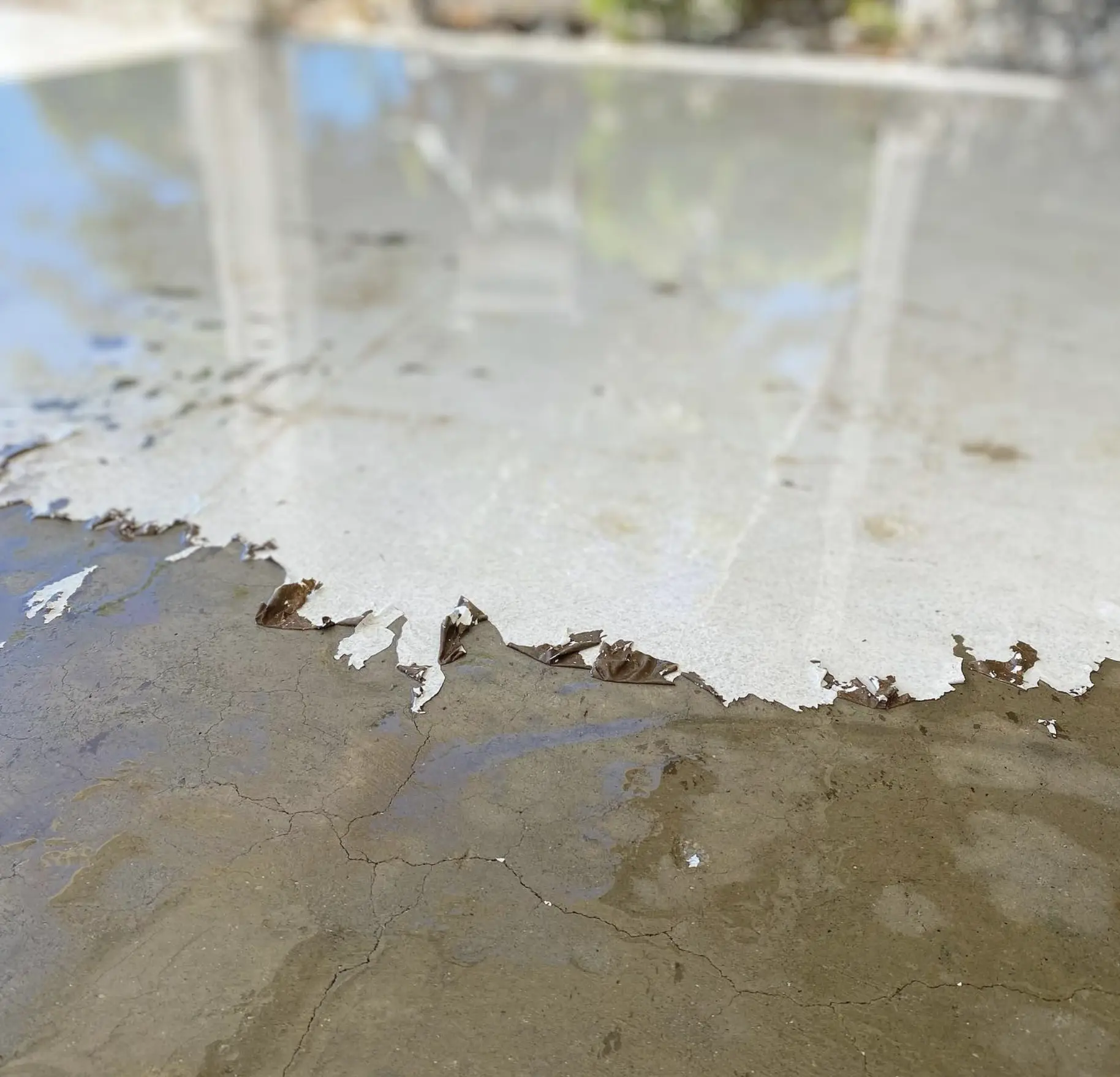
The Truth About Using Vinegar
Here’s What Vinegar Does:
- Softens water-based paints like latex or acrylic (especially when warmed)
- Helps lift thin, fresh paint or minor overspray
- Acts as a natural option for small-scale cleanup jobs
- Minimises reliance on harsh chemicals or expensive products
What Vinegar Doesn’t Do:
- Remove oil-based or epoxy paints from concrete floors
- Handle multiple stubborn paint spills or thick paint layers
- Replace chemical paint strippers, mechanical methods, or professional help
We’re not here to sugar-coat it. Painting on concrete can be a difficult task, especially if it’s been baking in the sun through three Aussie summers.
A No-Nonsense Step-by-Step Guide
List of Tools & Safety Equipment:
- White vinegar (or warm vinegar)
- Kettle or microwave (for heating)
- Stiff-bristled brush or wire brush
- Non-metallic scrub brush for polished concrete
- Paint scraper or metal paint scraper
- A bucket of warm water or soapy water
- Protective gear: gloves, safety goggles, protective clothing, safety glasses
- Clean water for rinsing
- Adequate ventilation is necessary
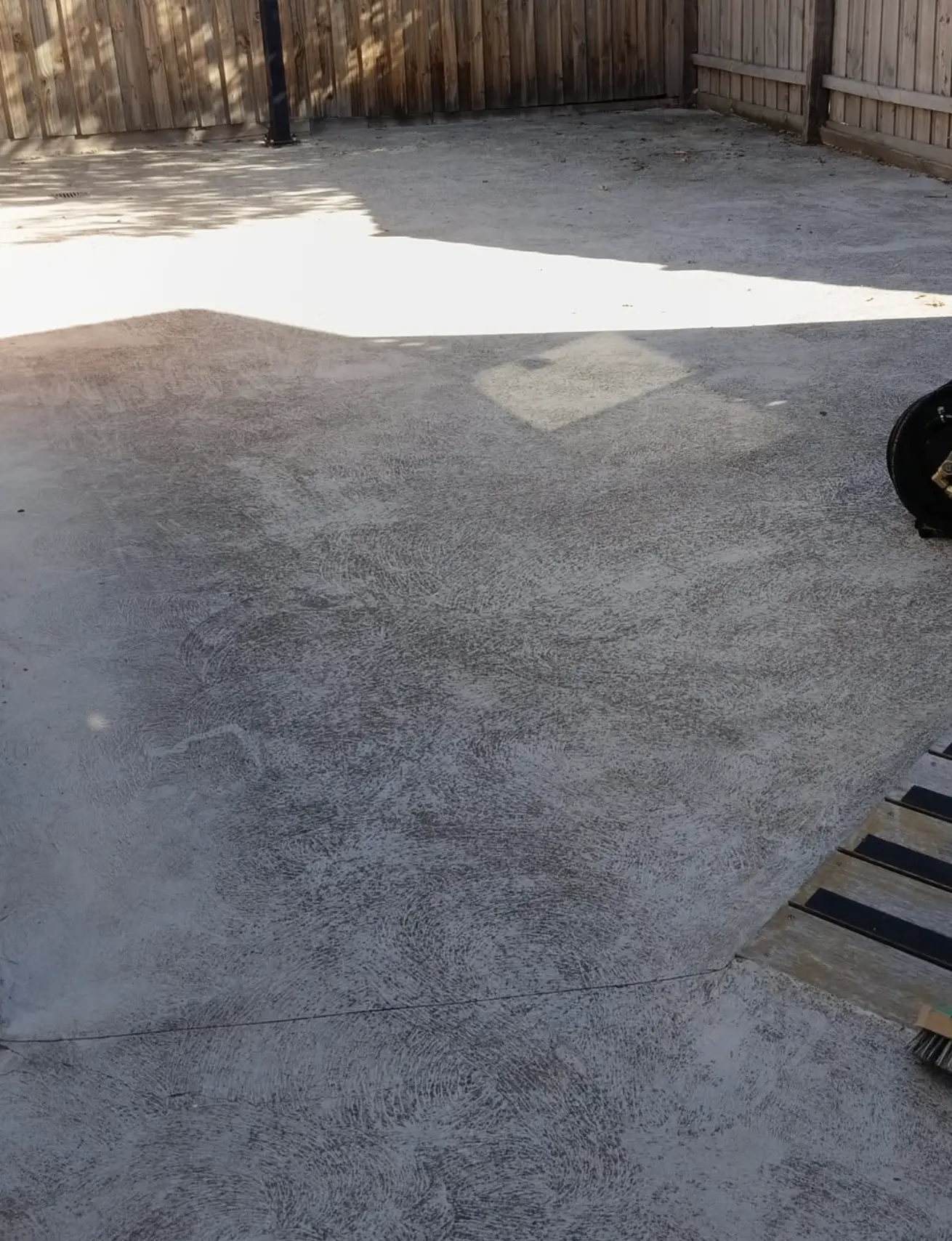
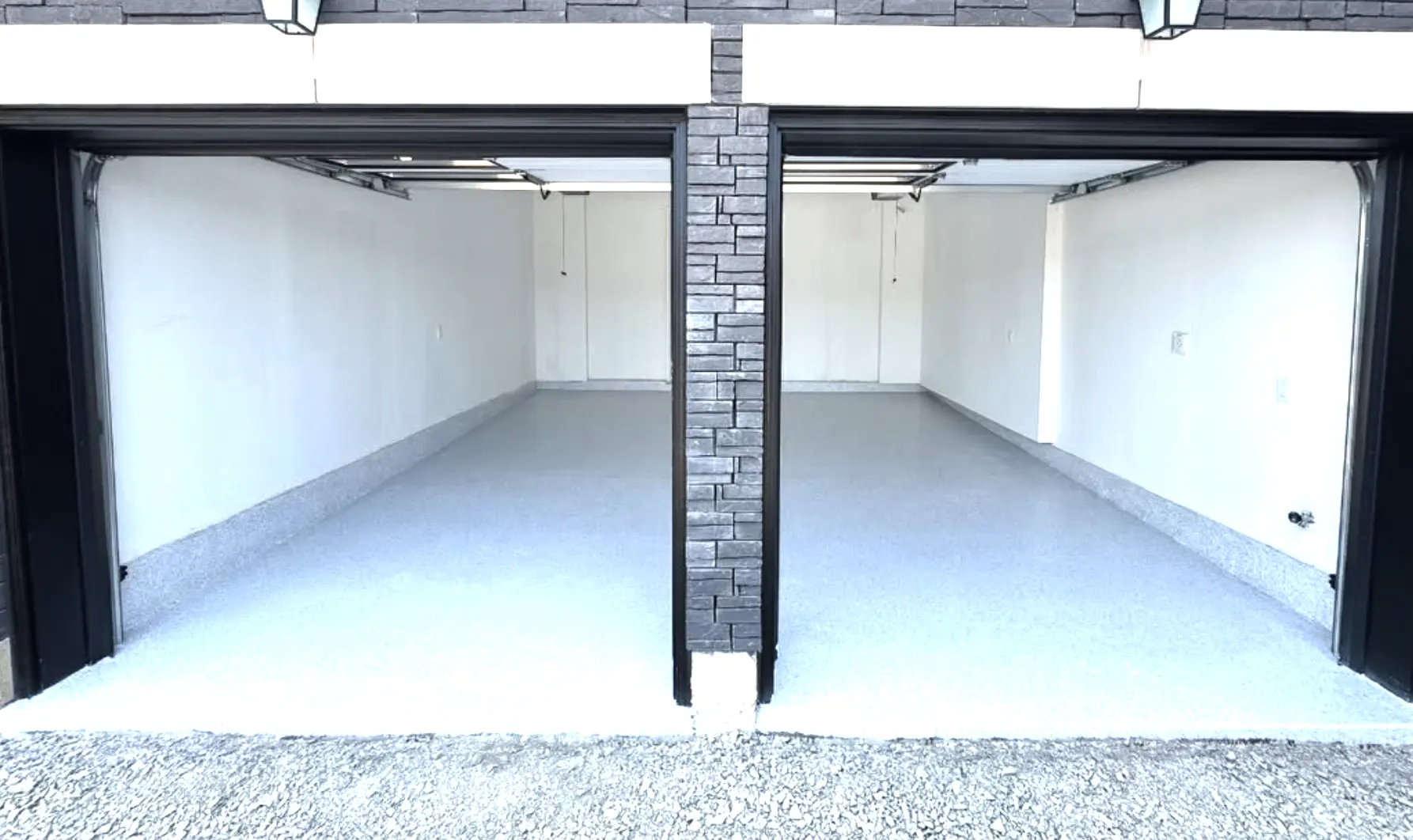
Step Guide:
- Prep the surface: Clear any loose debris, dirt, or dust from the area.
- Heat the vinegar: You want it hot but not boiling — warm vinegar works better than cold.
- Soak a rag or spray a generous amount of the vinegar solution on the paint stain.
- Let it sit for 10–15 minutes. You might see some bubbling or softening.
- Scrub using circular motions with a stiff brush or wire scrub brush.
- Use a paint scraper to gently lift softened paint.
- Rinse with hot water and repeat as needed.
- Dry the area and inspect for paint residue or leftover chemicals.
*We’ve spent years pressure washing concrete floors, tackling stubborn paint stains from basements to outdoor patios, and trialling every trick under the Aussie sun. One of our crew from the Window Cleaning Melbourne Crew even copped a rogue paint spill while cleaning high-rise glass in Melbourne — turns out vinegar helped, but only on the fresh stuff.
Know Your Surface Before You Start
| Concrete Type | Vinegar Safe? | Notes |
|---|---|---|
| Plain grey concrete | Yes | Still test a patch first |
| Polished concrete | Risky | Avoid acidic or abrasive options |
| Coloured concrete | May fade | The acidic nature of vinegar can alter colour |
| Sealed or smooth | Not recommended | Use eco-friendly paint removers instead |
| Outdoor patios | With caution | Vinegar and wire brushing work on light stains |
| Concrete garage floors | Depends on finish | Avoid damage to epoxy or protective layers |
What If Vinegar Doesn’t Work?
Mechanical Methods
- Wire cup brush method for tougher stains
- Power washers with correct pressure settings
- Soda blasting or abrasive treatments (great for graffiti removal or spray paint)
- Manual scraping for smaller areas
Chemical Paint Removers
- Choose eco-friendly paint strippers or solvent-based strippers (check labels for methylene chloride or alternatives)
- Always follow product instructions and ensure proper ventilation
- Best suited for tougher paint, garage floors, and larger surfaces
Natural Paint Removal Techniques
- Baking soda paste (baking soda + warm water)
- Citrus-based solutions (available at Bunnings or Mitre 10)
- Warm vinegar with baking soda for stubborn spots (test before use)
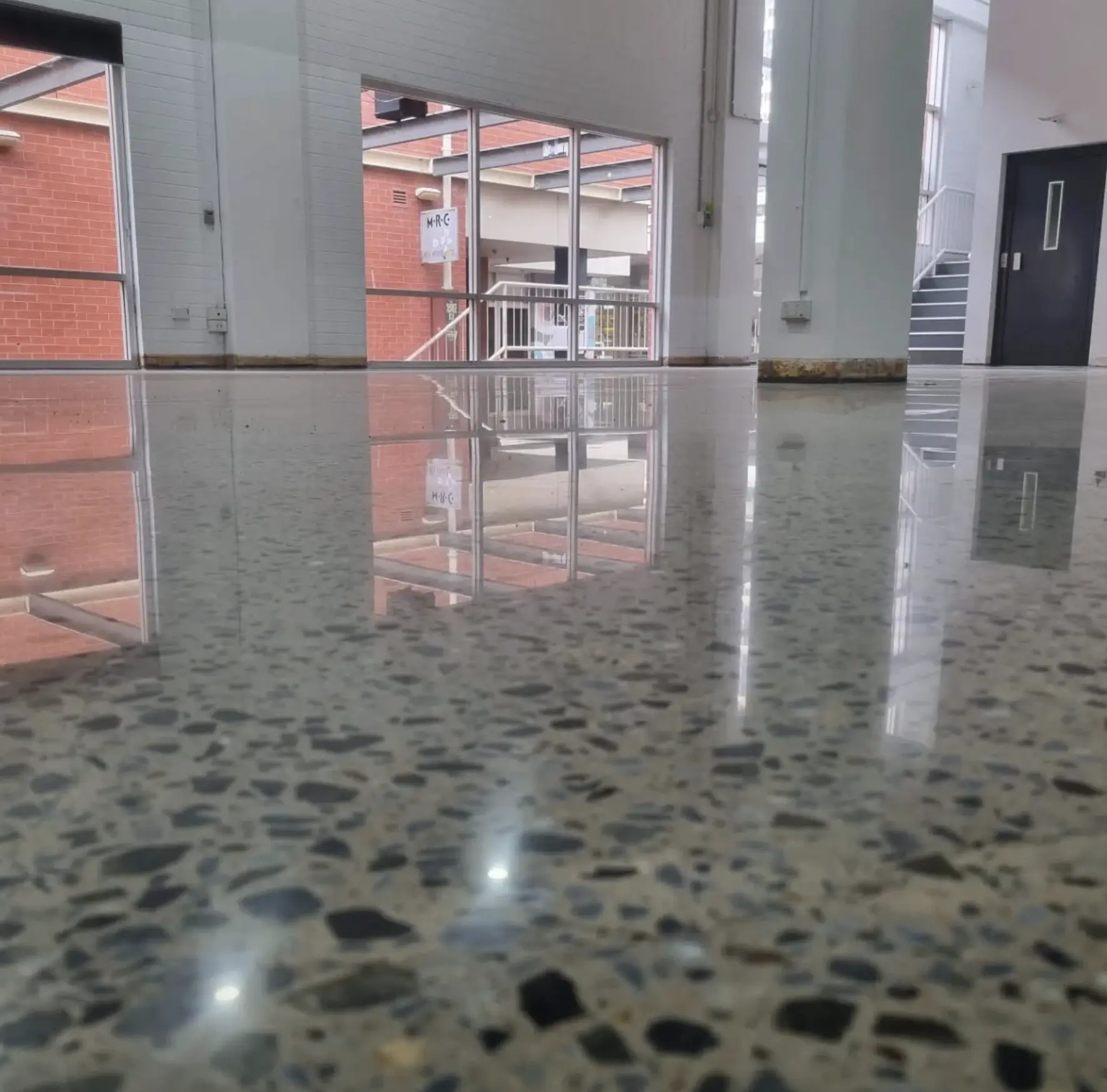
Matching the Method to the Paint Type
| Paint Type | Removal Difficulty | Best Method |
|---|---|---|
| Latex Paint | Easy | Warm vinegar, baking soda, and a stiff brush |
| Acrylic Paint | Moderate | Warm vinegar + paint scraper |
| Oil-Based Paints | Hard | Paint thinner, chemical strippers |
| Epoxy Coatings | Very hard | Mechanical + chemical combo |
| Spray Paint | Moderate–Hard | Soda blasting or graffiti remover |
| Lead-Based Paint | Hazardous | Professional paint removal only |
| Enamel Paint | Tough | High-pressure washing + stripper |
| Wet Paint | Easy | Vinegar or warm, soapy water |
| Dry Paint | Difficult | Strippers or mechanical removal |
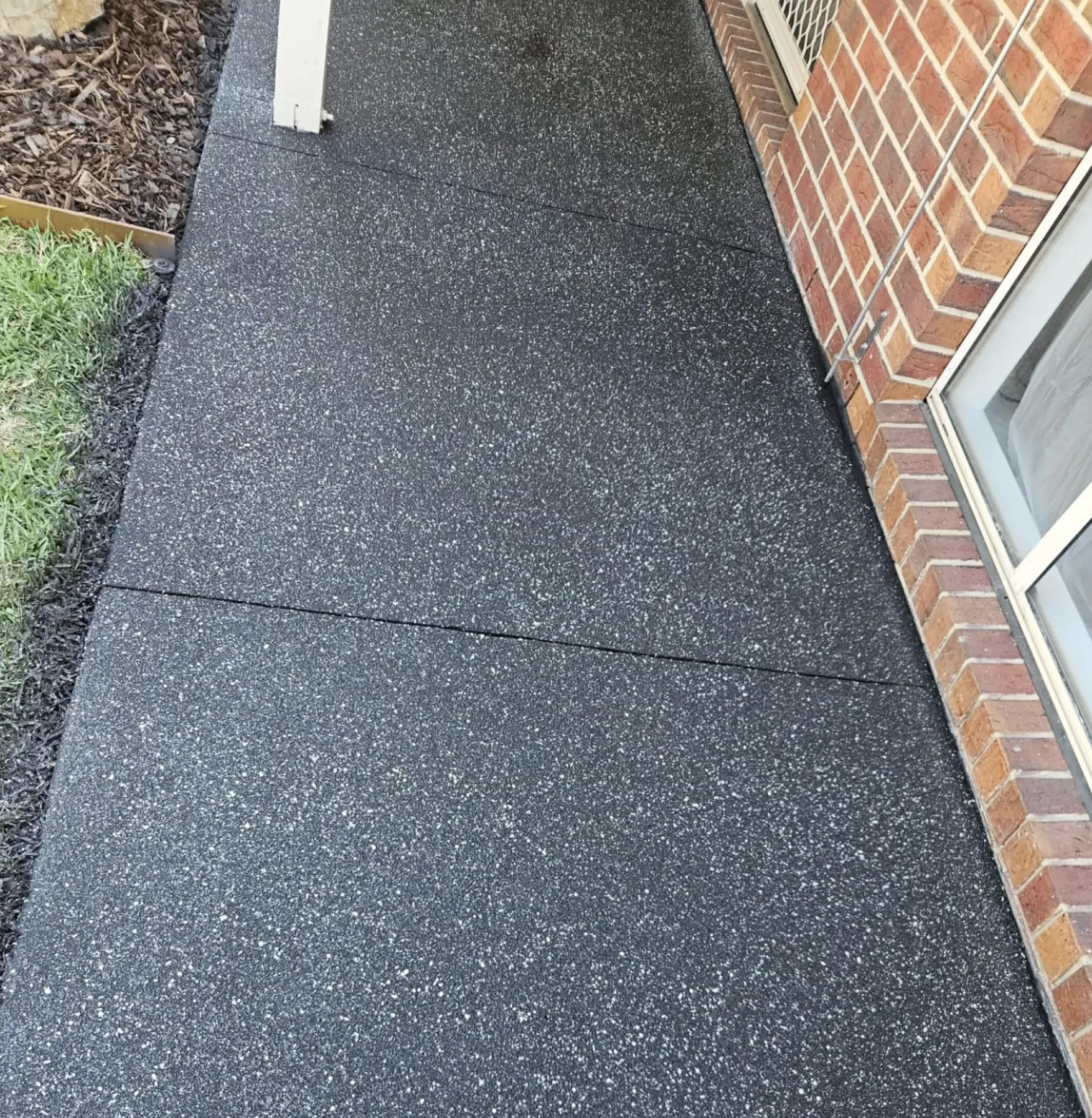
Safety Precautions for DIY Paint Removal
Working with chemical paint removers, vinegar, or even mechanical tools comes with a few risks. Don’t skimp on safety:
- Use gloves, eye protection, and protective clothing
- Work in a well-ventilated area
- Never mix vinegar with bleach — it’s toxic
- Check weather conditions for outdoor jobs — no point in pressure washing during a storm
- Always read product labels and follow safety guidelines
- Store leftover chemicals properly — don’t dump them down the drain
Removal Doesn’t Always Go to Plan
One bloke in Wagga used hot vinegar and a wire brush on his painted concrete patio — figured he’d save a few bucks on chemical strippers. Ended up with patchy, etched concrete, still stained with pale blue traces of paint. We got the call after he’d given up. Our crew used soft pressure washing, a Citrus-based solution, and a paint removal method that protected the surface without leaving chemical residue. It took time, but it came up like new.
Quickfire Tips to Get the Job Done Right
- Start small and test your method
- Avoid harsh chemicals unless you know what you’re doing
- Don’t overdo it with the pressure washer — start with firm pressure, not full blast
- Warm water helps break down paint bonds
- Keep your tools close: stiff brush, paint scraper, hot vinegar, baking soda, and clean water
- Use eco-friendly methods for regular cleaning or small spills
- Reserve chemical treatments for stubborn paint and tough paint stains
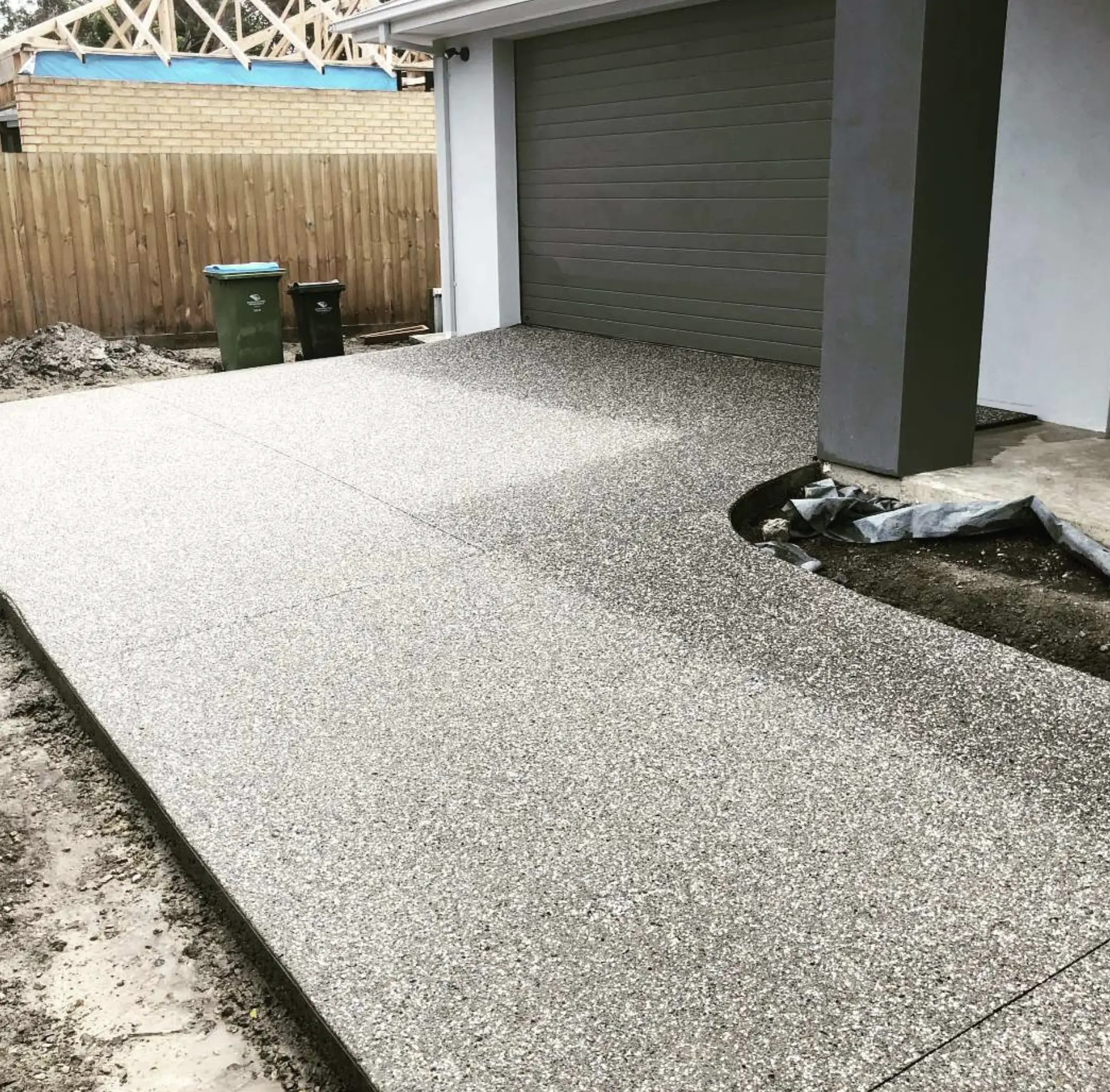
FAQ
Can vinegar remove all types of paint from concrete?
Nope. Vinegar works best on water-based paints like latex or acrylic. It’s ineffective against oil-based or epoxy paints without extra help.
Will vinegar damage my concrete surface?
It might. The acidic properties of vinegar can etch or dull coloured or sealed concrete, especially with prolonged use. Always test first.
Is vinegar a safe alternative to chemical paint strippers?
Yes — in moderation. It’s a natural cleaning solution for light stains and small spills. But for tougher stains or multiple layers of paint, you’ll need chemical solutions or mechanical methods.
What’s better — vinegar or a pressure?
Depends on the job. Vinegar is better for eco-friendly spot treatments, while pressure washing concrete is great for large outdoor surfaces and stubborn paint spills — just mind your pressure settings.
Should I use vinegar indoors for paint removal?
Only if you have Proper Ventilation, even though vinegar is nontoxic, vapours and paint particles can still irritate your lungs. Always wear safety equipment and work in a well-ventilated area.






